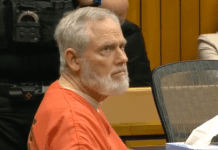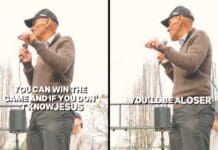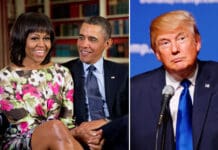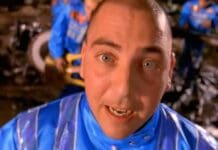In his third installment of “Uncomfortable Conversations with a Black Man,” former NFL player Emmanuel Acho talked to Chip and Joanna Gaines—and all five of their kids. When Chip and Joanna’s son, Drake, asked Acho if he had hope for the future “with all that’s going on in the world,” Acho said that he did, but only because of the people who are willing to listen.
“I do, because of a man like your dad,” Acho said to the kids, “because of a woman like your mom. But the only way to have hope for the future is if you all listen to these people [Chip and Joanna] and if these people listen to me and if I listen to them. Then I think we all have a lot of hope for the future.”
More Uncomfortable Conversations with Emmanuel Acho
Chip and Joanna have been discussing race with their five children and trying to get an idea of how their kids think about it. At one point, Chip had asked them: If you were at a gas station and saw a black man and white man, would you feel more threatened by one than the other?
Joanna told Acho, “And the kids all really quick said, ‘No. Why?’ Like in their mind, that wasn’t, they didn’t even think about that. And so later Chip and I were talking, and this whole idea of this color blind thing came up.” At first, Chip told Joanna he was proud because it seemed as though their kids were “color blind,” but then the two began debating whether or not being blind to other races was good. “In your opinion,” asked Joanna, “what’s the best way to move forward with this conversation?”
Should We Strive to Be ‘color blind’?
“I think that it’s best that we raise our kids to see color because there’s a beauty in color and there’s a beauty in culture,” said Acho, who believes trying to be “color blind” could even be dangerous. As an illustration of what he meant, Acho said he never had pets growing up, and his only experience with a dog was when one attacked his sister. So now he sees all dogs as threats, even though they are not.
If we are never around people of other colors, we will end up with false assumptions and not be able to discern true problems. White people won’t be able to tell the difference between “a black man that’s a threat and black man that’s just black.” On the other hand, said Acho, “A black person won’t be able to decipher between a white person that’s a racist and a white person who is just white and may happen to be racially ignorant.”
Have We Truly ‘come a long way’?
Joanna asked if Acho agreed with people who say, “We’ve come a long way,” in overcoming racism. He responded, “I would say that it is accurate, but it is incomplete.”
We don’t enslave people any more, and we don’t have laws blatantly enforcing segregation, so yes, we have come a long way. “However,” he said, “there is still such a long way to go.”
Acho alluded to the fact that June 12 was Loving Day, a day that commemorates when the U.S. Supreme Court struck down bans on interracial marriage. That was only 53 years ago. Acho also had a realization when he spent the previous night at a white friend’s home in Waco, Texas. Only 70 years ago, he would have been executed for that. “Just imagine that for a second,” he said.
The former NFL player made the point that history should be remembered, but not necessarily celebrated: “I think that we have racism so ingrained into our culture, we don’t even realize we are blind to it.” The blindness some people have is similar to people who don’t realize how badly they need glasses. “My white brothers and sisters, until they put their glasses on, they can’t see all the dimensions of life,” said Acho.
He attributes this “lack of sight” to why some people do not understand why black people have a problem with Confederate memorials. Said Acho, “Maybe having statues littered across campuses that I have to look at of men who would have oppressed and enslaved and potentially executed me, maybe that’s a problem.” He believes we have to do a better job of determining which heroes we should celebrate.
















